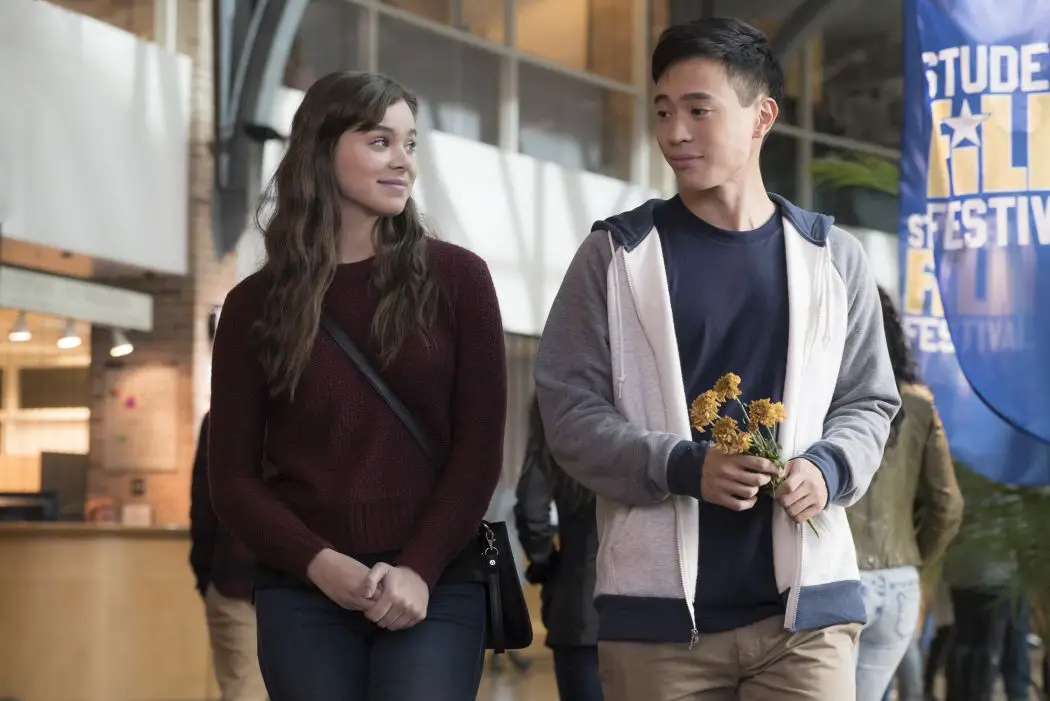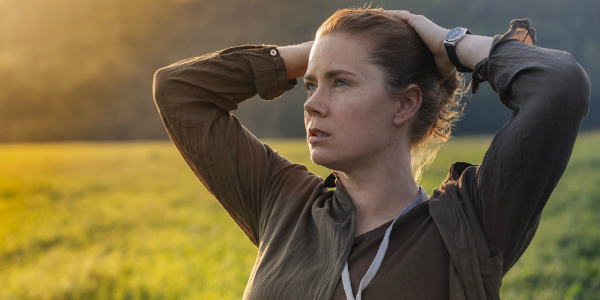2016: The Year Of Grief And Letting Go

An Instructor of Communication Studies at Ball State University, Spencer…
2016.
A year that will live in infamy. A year shaken by unexpected celebrity deaths, an unnerving election cycle, and unsuspecting twists waiting around every corner. Take a look around and you will undoubtedly find people lamenting that 2016 was their worst year yet. You may find those wishing, hoping, and vowing that 2017 will be better. It has to be better. And while, to an extent, I agree – 2016 was a strange year, I also have to take pause. So much of what we experienced as a collective could be read as horrifying.
But one area that excelled, that truly helped me though a troubled time, was the quality in cinema. And I am not talking merely about the how good these films were, because they really were, but what themes they tackled. Manchester by the Sea. Jackie. Blue Jay. A Monster Calls. The Edge of Seventeen. Arrival. Other People. Kubo and the Two Strings. Even Batman v. Superman: Dawn of Justice. The list continues. Fundamentally different films, yes. But perhaps most importantly, each is centered on grief or loss and the messy task of letting go and moving forward in a troubled time.
A deeper examination of this trend is particularly useful, as it dissects loss in ways often unexplored on public platforms. Maybe 2016 cannot be salvaged, but an exploration of film’s portrayal of grief can help us cope and step into 2017, rejuvenated and ready for new challenges.
Why Grief? Why Now?
The first scene of The Edge of Seventeen follows Nadine (Hailee Steinfeld) as she storms down the hallway of her high school, ready to profess to her history teacher (Woody Harrelson) why she is ready to die – at the age of… you guessed it, seventeen. Jackie Kennedy (Natalie Portman) dons a veil and proceeds down the streets of Washington D.C., following as her husband’s casket is taken to its burial site in Jackie. And these are just two manifestations of grief represented in film from the past year.
Indeed, it could be so easy to write off 2016. For many, the losses outweigh the benefits. Write me a laundry list of all things that went wrong, and surely, we could all commiserate. Which leads me to wonder… why should we talk about this anyway? What does this achieve?
Take a look back at the films I mentioned earlier, and then think of some more from this year that are about coping with loss. When you think about it, this list is extensive. It’s exhaustive. And for many of us, they are emotionally draining. As we wipe away the tears from the aftermath of watching Blue Jay, we may think, “Why did I put myself through that?!” And it’s true – watching these movies can be a lot to take in at one time. They are sad, frustrating, grueling to get through. At times, I wonder if I am making myself more upset when I watch these difficult films.

However, if you will indulge me for one paragraph, I want to share a personal story. It was two days after a terrible U.S. election cycle. I was in Philadelphia for an academic conference, and I was already feeling disheartened by everything around me. Everyone was upset. I was upset. I needed an escape. I stole away for several hours to go see Denis Villeneuve’s 2016 film, Arrival. I knew little about its plot, or what I would be seeing. But as the lights dimmed and the haunting score kicked in, I was instantly sucked into this almost dream-like world. I was kept on the edge of my seat as Amy Adams attempted to bring the world closer together – through our underrepresented use of language. It seemed simple, but at the same time, incredibly complex. Not to mention, for a “science fiction” film, it was surprisingly human.
And let me be clear here: this is not a review for Arrival, but of my reaction to the film. When the credits rolled, I realized that I had been holding my breath for the final minute. The theater lights turned on, and I remembered that I was amidst fellow moviegoers who had all witnessed the same thing. And whether or not we all liked the movie is the not the point. We had all been a part of this experience, of this story that Villeneuve had crafted – one of humanity, heart, and mortality. I walked out into the dusky Philadelphia evening feeling crushed, nostalgic, yet… hopeful. The problems going on in the “real world” were still there, but what I was equipped with now was a new outlook on life. And as corny as that may sound, it was reassuring – that everything would somehow be okay.
How Do We Cope?
It’s strange, right? It’s an alarming feeling, to have a movie catch you off-guard like that. And believe me, Arrival is just one example of a film that took me on a rollercoaster ride. In fact, I would say that 2016 took me on a journey of emotions: I laughed, I teared up, I gasped. But, months from now, if you asked me what my takeaway was… I would have to say that it is okay to be upset by what we see on the screen. Let the movies you watch break your heart. Escape to these worlds, however real or fantastical they are, and share in these stories.
Watching grief played out in the films we watch can help guide us through our own emotions. I am thankful that Manchester by the Sea taught me that loss is so much more than a feeling that we get over and move on from. It’s not something that we “beat.” It lurks behind any unforeseen action, it manifests itself in quiet moments, and we can never really outrun it. But perhaps we don’t have to. After all, as Kubo and the Two Strings reminds us: it is in the stories we tell, the legacy we leave behind that helps us move forward.

I am not trying to say that we will become transformed from every movie we watch. Far from it. Some of the movies I watched from 2016 definitely did not resonate with me (I’m looking at you, Collateral Beauty). But sometimes, the emotional responses we have to certain films can help us cope with our distress. I have always argued that films are often linked to our own experiences – we live through the goings-on in the movies we watch. In other words, films offer us a template to explore our own grief.
So, watch the movies that make you sad, that make you mad. Take yourself on that journey. Get sad. Get mad! You’ve earned it. 2016 was a terrible year, I am sure we can all admit that. But do not let that affect you. Films are powerful tools. We watch them for a reason. If you give yourself the chance, they can help you grow, and they can help you heal – from whatever it is that is ailing you. You may be surprised to find, but perhaps the films you watch will prove to you that grieving is okay. But it is letting go and moving forward that is the real key to unlocking possibilities for the future.
With that said, look back on 2016. What were the films that helped you grow? What were the films about loss that helped you cope with a troubling year?
Does content like this matter to you?
Become a Member and support film journalism. Unlock access to all of Film Inquiry`s great articles. Join a community of like-minded readers who are passionate about cinema - get access to our private members Network, give back to independent filmmakers, and more.
An Instructor of Communication Studies at Ball State University, Spencer enjoys the simple things in life: his cat (Laura Dern), Laura Dern (the actress), and snagging any chance he can get to watch movies. In his spare time, he champions Kristen Stewart and writes think-pieces about why Taylor Swift is a pop music mastermind.













